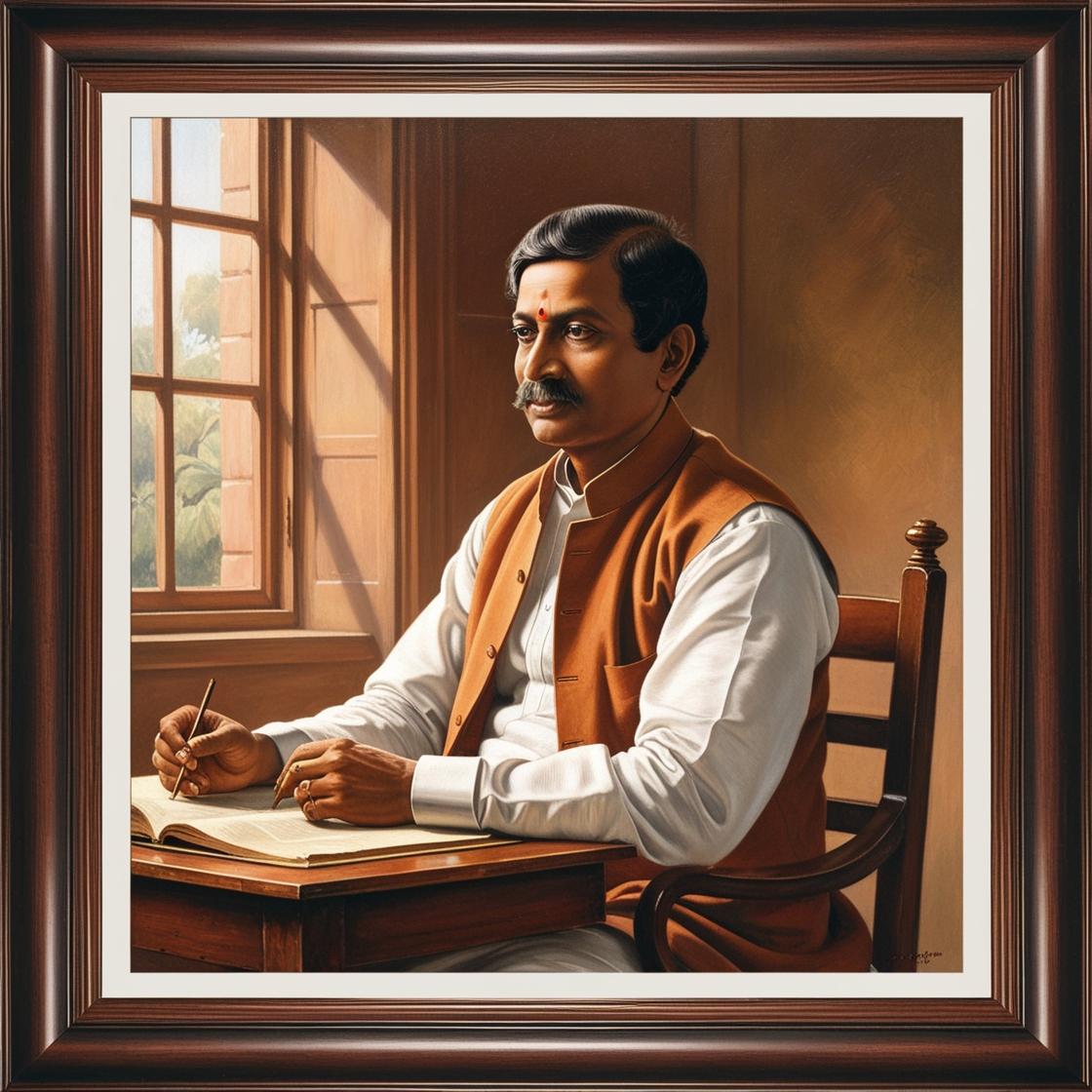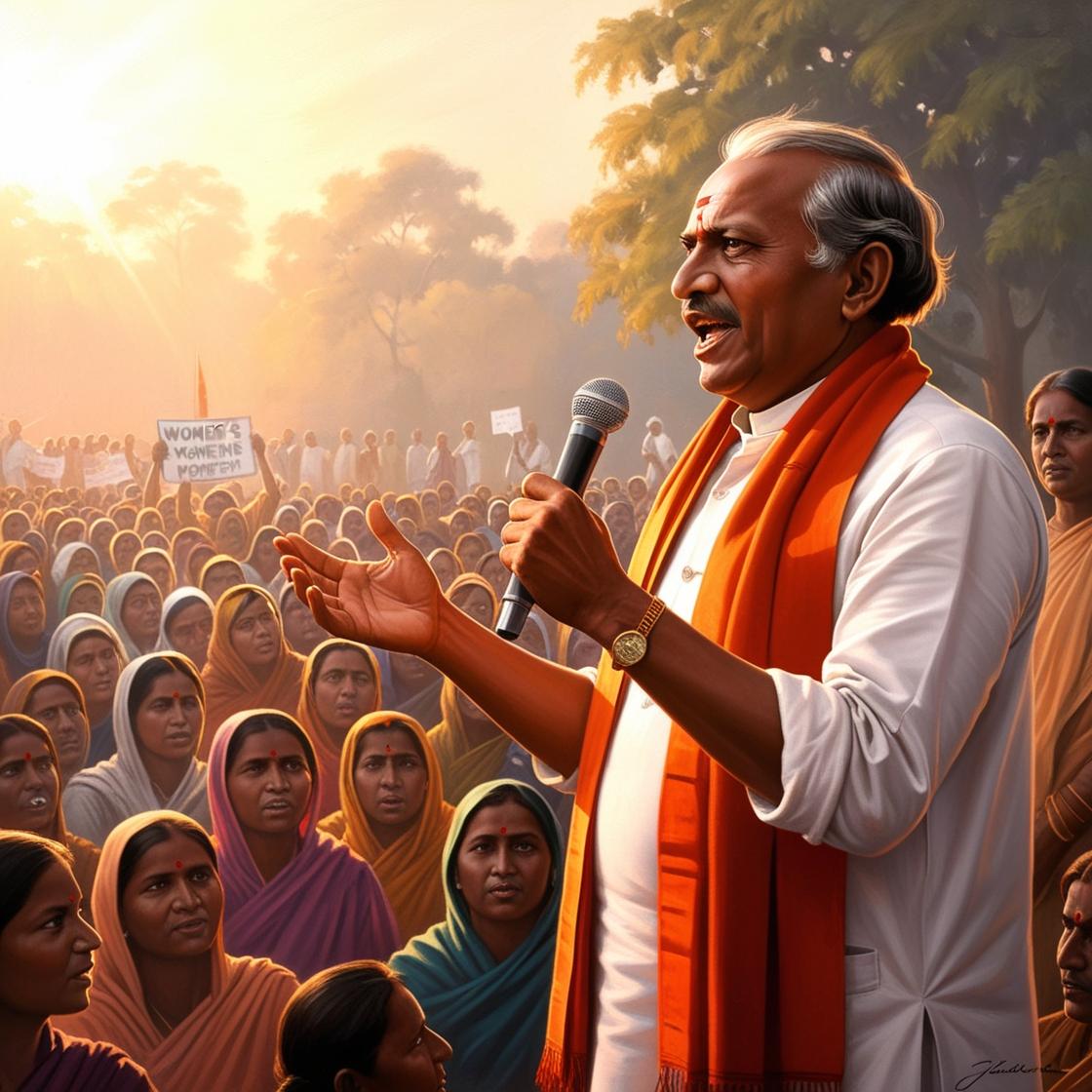Jyotiba with access to justice, equity, and growth for lower castes and women. It asserted that only through education growth could be possible. Phule's thoughts on education can e summarised as follows- 'Lack of education leads to a lack of wisdom, which in turn leads to a lack of justice. It leads to a lack of progress, which leads to a lack of money and results in the oppression of the lower castes'.
Mahatma Phule was fully conscious about the importance of education as a tool of social justice and equality. In fact, he saw education as the harbinger of a social revolution. Phule made critical observations regarding the existing education system during British rule, emphasizing his advocacy for universal, free, and compulsory primary education aimed at uplifting marginalized communities, particularly women and lower castes. The essence of the philosophy of Mahatma Phule was that 'education is a human right.' He was indeed the protagonist of the ides of universalisation of educational opportunities.
Life and Social Reforms of Mahatma Phule

Mahatma Jotiba Phule was a prominent social reformer in 19th century India, who dedicated his life to fighting against social injustices and promoting education, equality, and women's rights. Born on April 11, 1827, in Pune, Maharashtra, Phule was raised in a family of vegetable vendors and was exposed to the harsh realities of the caste system from a young age.
Phule's early life was marked by struggles, including the loss of his mother at a young age and being forced to drop out of school to help his father with the family business. However, he was determined to pursue his education and eventually enrolled in the Scottish Mission High School in Pune, where he was exposed to Western education and ideas.
Phule's experiences as a member of the marginalized Shudra community and his observations of the social milieu of his time deeply influenced his thoughts on education and social reform. He recognized that education was the key to social change and equality, and he dedicated his life to promoting education, particularly for women and marginalized communities.
One of Phule's most significant contributions to social reform was his work in promoting women's education. He believed that education was essential for women's empowerment and that it was the key to breaking the cycle of poverty and oppression. In 1848, Phule opened the first girls' school in Pune, which was a radical move at the time, given the societal norms and restrictions on women's education.
Phule's work in promoting women's education was not limited to opening schools. He also advocated for the abolition of child marriage, which was a prevalent practice in Hindu society at the time. He believed that child marriage was a major obstacle to women's education and empowerment, and he worked tirelessly to raise awareness about the issue and to promote legislation to ban the practice.
In addition to his work in promoting women's education, Phule was also a vocal critic of the caste system and the social injustices it perpetuated. He believed that the caste system was a major obstacle to social change and equality, and he worked to promote inter-caste marriages and to challenge the dominant position of the Brahmins in Hindu society.
Phule's educational philosophy was centered on the idea that education should be accessible to all, regardless of caste, creed, or social status. He believed that education should be practical and vocational, and that it should be focused on promoting social change and equality. He also advocated for compulsory primary education and for the promotion of physical and moral education.
Throughout his life, Phule faced numerous challenges and obstacles, including opposition from the orthodox Brahmin community and the British colonial authorities. However, he remained committed to his ideals and continued to work tirelessly for social reform and education.
Phule's legacy is a testament to his dedication and commitment to social reform and education. He is remembered as a pioneer in promoting women's education and social change in India, and his ideas continue to inspire social reformers and educators today. His work serves as a reminder of the importance of education in promoting social change and equality, and his legacy continues to inspire future generations to work towards creating a more just and equitable society.
Universalization of compulsory primary education by Jyotiba Phule
It basically means accepting and extending facilities of education to all caste, creed, religion, sex, and physical or moral disability. Article 45 Indian Constitution is the symbol of victory for the philosophy of equality of educational opportunity propounded by Mahatma Phule. He also worked for education of women and virtually laid the foundation for opening up opportunities for women to seek formal education. This was especially true of women from the marginalised sections.
For achieving the aims, he opened a girl's school in 1848 at Budhwar Peth in the residential building 6 of Tatya Sahib Bhide. He opened two more schools by 1851, among which one school was for girls of backward class. He had extraordinary ideas about different aspects of education.
Salient Features of the Educational Philosophy of Jyotiba Phule
Since all human beings are equal, access to education must be uniform. Phule's own experience with secondary education shaped his thoughts on the need for broader educational opportunities. Monopolistic controls over education must be curtailed. Universalisation of opportunities and compulsory education must be ensured. In educating individuals, religion, race, caste, and sex should not be considered.
Education should develop humanistic values
The education of women and other deprived groups must be given top priority for the establishment of social justice, as Mahatma Phule prioritized women's education to advance societal development and empowerment. Education must serve as a binding force in society. A primary school teacher must be a trained person and sufficient salary should be paid to him/her.
Curriculum must be utilitarian and provide practical knowledge
Curriculum has to cover the needs of the society. Mahatma Phule emphasized the importance of vocational education in the curriculum to ensure practical knowledge and skills development. Preliminary knowledge about agriculture and health should be included in the curriculum. There should be a differentiation between the curriculum of rural and urban schools. Values that stand the test of time, such as freedom, equality, fraternity, kindness, self-respect, devotion to one's nation, and internationalism, should be developed through education.
Professional ability and capabilities through education
Education should be able to develop professional ability and capabilities so that knowledge may be properly linked. The downward filtration theory advocated by Lord Macaulay is not philosophically sound as it ignores the common masses. Practical knowledge is superior to bookish knowledge. Hence primary knowledge in Modi (a special Marathi script) accounts, history, grammar, agriculture ethics and health should be imparted. Though quantitative growth in primary schools is important, it should not be at the cost of qualitative growth. The government must formulate the scheme of scholarships and rewards for deserving students and those in need of support.
Jyotiba Phule's Bold efforts in women's education
Phule's bold efforts to educate women, Shudras and the untouchables had a strong effect on the values, beliefs, and ideologies relating to the movement for social justice through education. His efforts in education led to significant social change, earning him the title of the 'Father of Indian Social Revolution'. His efforts unleashed the forces of awakening among the common masses. Education made women more knowledgeable. They became conscious of the differences between the right and the wrong and could analyse these differences with a scientific approach. They began to question the age-old customs which degraded them. Similarly, Shudras started claiming equality with upper castes in all areas of life. In short, Jyotiba Phule launched a movement for liberating women and Shudras from the control of vested interests and laid the foundation for a Backward Class Movement in India.
The relevance of Jyotiba's Educational Philosophy Today
In today's educational scenario, Phule's thoughts on education is very relevant. As we know, today education has been mostly reduced to information transmission. There is always a fear of examination because of bookish education. But for Phule knowledge was not just information. It involves questioning, understanding critiquing and interpreting knowledge. As early as in the 19th century Phule had given alternative education models.
For him, 'Education is the power to think, the power to act well in the world's work, and the power to appreciate life.' For Phule knowledge matters because it can question, change and transform the individual and society. Education can empower and make society more democratic. It can help in reconstructing, rethinking and in interpreting tradition. This thought of Phule is extremely relevant in the paradoxical context of caste in contemporary India- where despite constitutional provisions, caste discrimination is widespread.
Concluding Note
Jyotiba Phule was the first Indian educationist whose pragmatic views on education were honoured by the British rulers in India. He was a practical man with a good philosophical background. The Indian educationists of that period and after were deeply impressed by the richness and originality of Phule's thoughts.
His educational ideas and principles, especially in women's education and universal, free, and compulsory primary education, are most relevant in modern Indian society as elsewhere. It is not an exaggeration to say that the history of women's education in India would be incomplete without mentioning the contribution of Mahatma Jyotiba Phule. He is truly called Mahatma.
